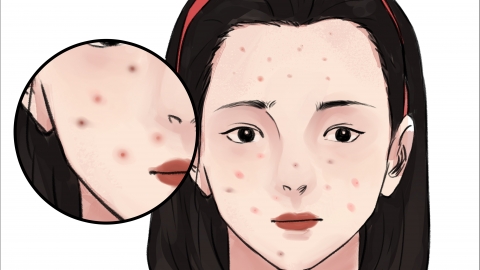How to treat acne scars
Acne scars may be caused by skin healing, excessive inflammatory response, abnormal collagen synthesis, impaired skin barrier function, or skin infections, and can be treated according to the specific situation. It is recommended to seek timely medical advice and undergo treatment under the guidance of a physician.

1. Skin Healing: During the healing process following acne-related inflammatory damage, excessive fibrous tissue proliferation or inadequate repair may occur. Under the guidance of a specialist, chemical agents or fruit acids can be used to remove the damaged skin layer and promote the growth of new, healthy skin.
2. Excessive Inflammatory Response: When the inflammatory response of acne is particularly severe, it may cause skin tissue damage and lead to scarring, possibly accompanied by symptoms such as redness, swelling, pain, or pustules. Keep the skin clean, avoid squeezing acne lesions, and reduce the spread of inflammation.
3. Abnormal Collagen Synthesis: Collagen is one of the main components of the skin and plays a role in wound healing. During acne healing, abnormal collagen synthesis—either excessive or insufficient—can lead to scar formation. It is recommended to follow medical advice and use physical therapies such as microneedling or radiofrequency treatments to improve scarring.
4. Impaired Skin Barrier Function: Damage to the skin barrier can affect the skin's self-repair capability and reduce its control over inflammatory responses, thereby increasing the risk of scar formation. It is advised to use moisturizing products that help restore the skin barrier to improve skin condition.
5. Skin Infection: Bacterial infection at the acne site may intensify the inflammatory response and promote scar formation. Patients may follow medical advice to use medications such as mupirocin ointment, azithromycin dispersible tablets, or fusidic acid cream to help control the infection. Maintain skin cleanliness, avoid manually squeezing acne, and reduce the risk of infection.
All treatment measures should be conducted under the guidance of a qualified physician to ensure safety and effectiveness. Additionally, maintaining healthy lifestyle habits and proper skincare routines can help prevent the formation of acne scars.







